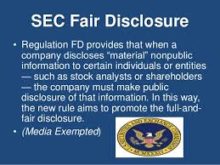Vivendi: Mediaset deal – a compliance concern

When Vincent Bollore forked out the equivalent of €864m on a 3.5% stake in Mediaset and a 88.9% stake in Mediset Premium, do you think he was provided with more financial details relating to the scale of MS Premium’s losses than has hitherto been released to the markets? With an implied cost for this pay TV stake of approx. €725m, Vivendi shareholders might reasonably expect that more due diligence was conducted by their chairman and team than just relying on the somewhat minimalist information afforded to the rest of us, which includes little more than a revenue and subscriber number. After Vivendi’s less than successful acquisition record under previous management, how credible is it that Bollore would proceed without a full disclosure of MS Premium’s performance?
The problem however, is not that Vivendi may have used that knowledge to help its purchase of Mediset’s Premium stake (of course it would!), but that it might have been in possession of privileged and price sensitive information when it also acquired the 3.5% stake in Mediaset. If one was to know the scale of Mediaset Premium’s losses, one could then work back to exclude Mediaset Espana and El Towers to derive the margins and therefore a valuation for the most important single variable in the group’s portfolio, its Italian commercial TV activities. Without a figure for the Mediaset Premium losses therefore would make it therefore virtually impossible to construct a reliable valuation for the Mediaset Group and its shares. If Vivendi had what the rest of us can still only guess about when it acquired €140m worth of Mediaset shares, then it would have had an insider’s advantage.
Perhaps it is time for European Exchanges to introduce its own version of the SEC’s RegFD to ensure a more level playing field of information and less selective disclosure.
